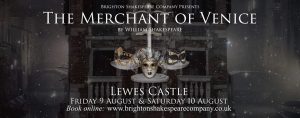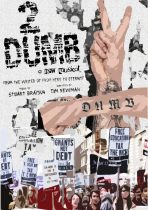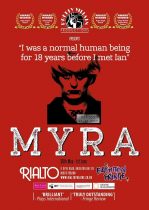
Sussex Playwrights Reviews
The Merchant of Venice
Brighton Shakespeare Company
BOAT, June 2019
The hottest day of the year slanted through a green amphitheatre lends occasion to comedy lanced with shadows. Brailsford’s Brighton troupe – the Brighton Shakespeare Company – make BOAT the Shakespeare go-to in late June. Last year’s vigorous The Comedy of Errors darkens this year with The Merchant of Venice from 1597.
The title role’s taken by Paul Moriarty (also Duke of Arragon), Shylock by Jules Craig. With Amy Sutton as Portia – a role she rightly claims she’s born to play – Kerren Garner’s raucous Nerissa and Duncan Drury’s ardent Bassanio, it’s a line-up that almost guarantees distinction.
Moriarty’s melancholic voice commands distinction from the first, as gadflies Lorenzo (Andrew Crouch, excellent) and Stewart Barham’s skirling Gratiano float round before the entrance of Bassanio. The initially quiet Crouch livens up when courting Rachel Mullock’s joyous, flirty Jessica.
Drury and Moriarty render the homoeroticism latent and affectionate, the latter fatalistic and weary from the first, his young friend in Drury’s reading. Drury’s not quite the ruthless go-getter, his feeling for Antonio and later Portia is genuine and alter (with the ring scene) conflicted. There’s no sense that Moriarty’s delicate but firm underlining of his feelings are reciprocated or perhaps recognized. Drury’s Bassanio is casually venal, entitled to a degree, an attractive insider-dealer heedless of consequence. But he’s neither cruel not within his limits insincere. As we find.
Barham’s gravelly disdain is venom contained, less sheerly cruel to Shylock than some and winningly raunch for raunch with Garner’s in-your-face lust as Nerissa, the maid to Portia who unlike her mistress can choose and blatantly does in front of her (no matter decorum would forbid, the emotional truth of it is overwhelming). Her desire’s expressed in dance-offs. In this production the constraints of the ardent aristos are underscored by their servants’ licence (Gratiano’s status cemented after wedding Nerissa). Barham too makes a parodic peacock of the Prince of Morocco.
It’s the same with Crouch and Mullock: flirty, passionate (Jessica grabs Lorenzo from the start) less lusty than sexy. Their playful badinage in V I is beautifully pointed, darkening from mythic classics to parries at ‘pretty Jessica’ fully answered but not really portending any fractiousness. Crouch literally dances attendance and their playfulness is balletic. This Jessica casts few shadows save at the end when she realizes how she inherits what she does.
Directed by Mark Brailsford and with costumes designed by Sean Chapman (Shylock and ‘Balthazar’ striking in black, period robes seamed mainly with old reds and saffron) this production is segmented by a music system directed by Brailsford (Strauss waltzes in the interval, Praetorius period dances otherwise), with Associate director Sarah Mann and Assistant director cast-member Kerren Garner. The set’s by ‘Ethel Mermen’. With minimal props – two benches, three caskets and a set of scales – there’s otherwise just a seductive backdrop panel of Venice with gondolas in yellow and black duo-chrome. The BOAT team supply standard facilities and lighting.
The badinage between Sutton and Garner is exquisite, both in their initial scene together when they parody previous suitors with basso and falsetto voices, and when confronting Barham’s preening Morocco and Moriarty’s rickety Arragon, full of frog Franglais.
Sutton’s distinctly terraced voicing and stage command from purr to latter steely judgement is quicksilver contained in dignity. Sutton never overstates the envelope of a rich woman richly left but inured to one constraint; but she’s deliriously playful within that. She manages though a different entitlement to Bassanio: one who knows the use of things for others’ sake, admittedly easy for her.
It’s here when Drury proves his mettle, quick sincere and decisive in his rejection of the gold and silver to Sutton’s quickening excitement, he chooses true. Drury proves here and in the subsequent trial scene his genuine agonizing and worthiness as much as any Bassanio can deserve the depth of a Portia.
There’s different registers for suitors, for Bassanio – where she breaks decorum when demanding to be claimed with a passionate kiss – and her later avatar: all recognizably different but in character. Thus Sutton’s Dr Balthazar really does seem and look different: by turns a paper-fumbling Colombo, pleading, steely, remorseless. Sutton spares some of the anti-Semitism now attributed to Portia. The text has been lightly edited.
Similarly she and Garner run rings round their hapless spouses in the two ring scenes, where Sutton literally rings with consonants. The trial scene where she takes on Craig is notably powerful: keen, spare, rivetingly lucid – which goes for the production but never more so than here.
Brailsford’s major role is Launcelot Gobbo – a role he takes in the spirit of Eric Morecombe judging by his dancing exits. It’s a characterful almost kindly reading, not as nasty as some and without the anti-Semitic point of the original. There’s a sense in which tis production wants to underscore the summery outdoors of its setting and concentrate tragedy in Shylock alone, but for Antonio’s incurable melancholy.
Garner’s Tubal to Craig’s Shylock. It occasions one of Shylock’s great monologues after an earlier one to Gratiano (‘Hath not a Jew…’). Craig’s Shylock is doubly discriminated against as a Jew and a woman. Craig brings out the desperation and revenge Shylock seeks through the only recourse she has: law. Craig’s quiet tread to judgement is riven by first Antonio’s unrepentant hostility even when making the bond – Moriarty spits in fact. And by the later discovery of Jessica’s betrayal.
This is expressed – to Tubal – in the ring (originally ‘had of Leah’) which is substituted ‘husband’ and ‘his’ not ‘my bachelor days’ of the engagement ring casually discarded by Jessica for a monkey, which Craig laments she would not have parted ‘for a wilderness of monkeys’ Rather quite in the first three acts, Craig is notably commanding in the latter two acts, basilisk-eyed and like Sutton, remorseless in front of Brailsford’s Duke of Venice. Her final ‘I am content’ after judgement is taken after a long pause and a visible shrinking into herself. It’s masterly.
There’s fine support from Katy Matthews as Solario and Gaoler as well as stage manager.
The final scenes as suggested are taken at a light lick. There’s no lingering fear from either Portia or Jessica, let alone Nerissa that things will go wrong. They’ve all commanded their respective husbands and as the final dance-off shows ‘put a ring on it’ to Beyoncé’s bouncy send-off. Despite a very occasional energy drop in Acts Two and Three this is a production of real distinction, one of the best I’ve seen outside the Globe and RSC. Sutton matches any Portia and Craig’s Shylock is a revelation.
Directed by Mark Brailsford and with costumes designed by Sean Chapman (supplied by Gladrags) this production is segmented by a music system directed by Brailsford (Strauss waltzes in the interval, Praetorius period dances otherwise), with Associate director Sarah Mann and Assistant director cast-member Kerren Garner. ASM’s Oscar Smart.
The set’s by ‘Ethel Mermen’. With minimal props – two benches, three caskets and a set of scales, there’s otherwise just a seductive backdrop panel of Venice with gondolas in yellow and black duo-chrome.
The BOAT team supply standard facilities and lighting.
Tour dates TBA.
Simon Jenner
Sussex Playwrights
The production will next appear at Lewes Castle
Brighton Shakespeare Company






